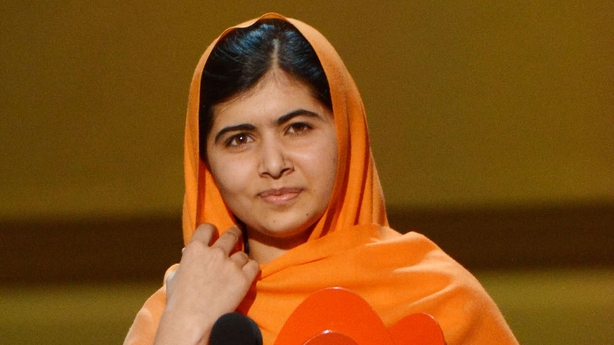Nigeria's President-elect Muhammadu Buhari has vowed to make every effort to free more than 200 schoolgirls abducted by Boko Haram militants a year ago.
He but admitted it was not clear whether they would ever be found.
The girls were abducted from a secondary school in Chibok in the country's northeast last April.
The abduction drew international attention to the humanitarian crisis caused by Boko Haram's attempt to establish an Islamic caliphate in religiously mixed Nigeria, Africa's biggest oil producer.
A march is expected in the capital, Abuja, today to mark the one-year anniversary of the mass kidnapping.
Mr Buhari presidential election win two weeks ago was the first democratic defeat of an incumbent in Africa's biggest economy and most populous nation.
He said his administration would do everything it could to defeat the militant Islamist group.
"We do not know if the Chibok girls can be rescued. Their whereabouts remain unknown.
As much as I wish to, I cannot promise that we can find them," he said in a statement.
"My government will do everything in its power to bring them home," added the former military ruler, who said his approach would differ from that taken by President Goodluck Jonathan.
Mr Jonathan was criticised for a slow response to the Chibok girls crisis after he argued that a hasty rescue risked killing them.
Today the United States renewed its appeal to Boko Haram militants to free the kidnapped schoolgirls.
State Department acting spokeswoman Marie Harf confirmed that the US still had a team of specialists on the ground in Abuja trying to aid the search for the missing girls.

Nobel laureate Malala Yousafzai has urged hundreds of Nigerian schoolgirls kidnapped by Islamist militants Boko Haram a year ago to "stay strong, and never lose hope".
Malala wrote an open letter to the girls on the first anniversary of the raid.
Peace Prize-winner Malala, 17, wrote that she and millions like her around the world "keep you and your families foremost in our thoughts and prayers".
The Pakistani teenager, shot in the head by the Taliban in 2012 after speaking out for girls' rights to education, also repeated her criticism of Nigerian political leaders and the international community for not doing enough to secure their release from captivity.
In the letter, posted on her website, she wrote: "We cannot imagine the full extent of the horrors you have endured. But please know this: we will never forget you. We will always stand with you.
"Today and every day, we call on the Nigerian authorities and the international community to do more to bring you home. We will not rest until you have been reunited with your families."
Malala spent her 17th birthday last July meeting the families of some of those taken in the raid on the village of Chibok, which focused worldwide attention on the deteriorating security situation in northern Nigeria.
Amnesty International said in a report today that Boko Haram has kidnapped at least 2,000 Nigerian women and girls since the start of 2014, many of whom were sexually abused or trained to fight.
The document, which includes scores of victim testimonies, accuses Boko Haram of rape, forced marriages and coercing them into armed attacks, sometimes on their own villages.
Female suicide bombers have been used by the insurgents in a spate of bombings in the last few months.
With help from Nigeria's neighbours Niger, Cameroon and especially Chad, the rebels have been forced to retreat from an area the size of Belgium in the last few weeks.

